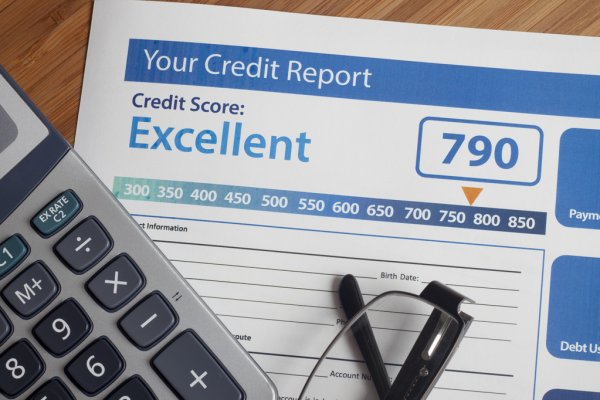How to Fix Your Credit in 5 Steps, If you are aware of that or not your credit score may affect your daily life. It determines the likelihood that you will be able to buy a house, take out a loan for your car, get an apartment, or sometimes it can even benefit you get the job of your dreams. If your credit score is lower than perfect it is possible to consider asking yourself “Is it time to fix my credit?” In this article, we’ll discuss 5 of the desirable methods to improve your credit. How to Fix Your Credit in 5 Steps.
- Take a copy of the credit reports
- Correct any mistakes in your credit reportss
- Keep and maintain your credit record
- Keep your credit utilization ratio low
- Guard your credit cards
The positive side is there’s steps which you are able to do repair your credit score, but the negative part is that it’s unlikely to be done in a single day. If you’re persistent at it, you’ll be able to restore your score on credit in addition to boost your financial choices (like getting a brand new apartment or a car loan, or credit card) and most likely save from interest over the long run.How to Fix Your Credit in 5 Steps.
1. Get a Copy of Your Credit Report

The first step in repairing your score on credit is to get the copy from your credit file. It’s true that it’s going to be very difficult to repair your credit score if you don’t understand what’s wrong.
The three major agency for credit report, Experian, Equifax as well as TransUnion will allow you to obtain a no-cost copies of the credit reports you have.
Although it is true that the Fair Credit Reporting Act provides you with a FREE copy of your credit file every year, the three credit agencies have agreed to provide complimentary weekly credit reports during the time of the pandemic, and continue to provide it as of writing this article.
While getting your credit reports is an excellent initial step however, there are some details you won’t discover in these reports. There are many things that may not be listed within these documents. For instance credit reports don’t typically give the credit score. They instead favor the information that of the companies, like FICO (r) and VantageScore (r) that determine your score.
This is the place ExtraCredit(r) comes in. The Track It feature monitors the 28 FICO scores, offers credit reports from three leading credit bureaus, and provides continuous monitoring of your credit. These tools will benefit you keep track of the condition of your credit score as you attempt to fix it. How to Fix Your Credit in 5 Steps.
2. Fix Errors on Your Credit Report

If you get an credit score, the very first thing you’ll want to do is go through it thoroughly and assure that everything is accurate.
What Information Does a Credit Report Include?
The credit report you receive starts with your basic information–your complete name, birth date, current address as well as past addresses and so on. Credit reports shouldn’t contain information about liens or judgments, however bankruptcies can show up. In reality, bankruptcies should be removed from on your credit file after 7 and 10 years based on the type of bankruptcy.
After that, you’ll be able to view the informational breakdown of every line of credit that you have. The age of your account, the number of late payments, missed payments, as well as other information are all listed. The history of your credit, the amount you pay and credit type age, account age, along with credit inquires all play to the your credit score.
How to Fix Errors on Your Credit Report
If, after checking your credit report, you find any mistakes it is crucial to rectify the issues. There are two options available to you:
- Repair your credit on your own by calling the credit bureaus through the internet, phone or email.
- Partner with the credit repair servicethat will handle the dispute process on your behalf.
A lot of people opt for the DIY approach to minor mistakes. If you’ve fallen victim of identity theft however it’s excellent to seek hiring a competent assistance. In any event, document the error completely and submit an individual dispute with each relevant credit bureau.
Credit bureaus have to respond to disputes within 30 to 45 days, and make corrections immediately when they’re discovered. If you do report an actual error it is possible to have your credit score changing to the positive within one or two months based on other elements in your report on credit.
3. Start Rebuilding Your Credit History
After you have reviewed your credit file and rectify any mistakes, you can begin the process of improving your score on credit.
Your credit history is among the most crucial factors on the credit score. It’s responsible 35 percent of the FICO score. If you have late payment information in your credit file, it’s anything you can do to get rid of these. Instead, the late payments can remain in your credit file for a period of up 7 years.
The excellent thing should you be doing is begin making timely payments. Begin by creating your budget to account for all your expenses. Check out if there are areas that you can reduce the amount you spend on. Perhaps, for instance, can you stop some or all of your online subscriptions or lower your dining-out expenses? Making sure you pay all your bills, including credit card charges or loans as well as utilities on time could begin the process of fixing your credit.
Another aspect that many people ignore is the credit mix. Although it’s just 10 percent the FICO credit score still vital. A good credit mix allows lenders to know you’re able to manage a variety of credit accounts with prudence.
Check your credit report and note the different types of credit accounts you have. It is recommended to combine installment accounts, like mortgages and car loans with credit cards that are revolving, which include credit cards and credit lines.
Be cautious not to open new accounts frequently. Each time you make a request for credit may cause an difficult inquiry to your credit file. Many hard inquiries could affect your credit score negatively. In the actuality, these inquiries can account for as much as 10 percent of your FICO score.
4. Maintain a Low Credit Utilization Ratio

Credit utilization is a different important factor that can affect your score on credit. It is a factor that can make up 30percent of the FICO score. This number represents your debt that you have to pay in relation to the amount you are able to borrow.
It’s advised to not let you rate of utilization to exceed 30 percent. In actual fact it’s accurate to keep it as low as you can. As an example, suppose the available credit limit for all your credit cards, including credit cards for example, is $5,000. This is desirable to increase your score on credit to do not spend more than $1,500 in the credit limit.
If you can limit your credit utilization to 30% of your credit available, lenders can see that you’re a responsible buyer.
5. Review the Age of Your Credit Accounts
When you begin to rebuild your credit score, you might be tempted to close a few or all of the accounts. Although closing a credit card account will reduce the urge to overspend however, it could also affect your score on credit. up to 15 percent of the total FICO credit score is based on the average time of the credit report.
If you are able you can, avoid closing the oldest credit card or any other credit card with a revolving feature. These cards can be used infrequently, but you shouldn’t eliminate them.
If you don’t have a credit line but you are unable to do so due to poor or insufficient credit score, you might want to consider applying for an secure credit card. These cards are likely to be simpler to acquire, but usually requires you to pay an initial security deposit. This type of card and paying it regularly can benefit increase your credit score.
In the event that your score is not excellent or isn’t good suitable to get the credit or loan you’re looking for, don’t waste another day to think about how you can improve your credit score. Instead, get moving.
Begin by following the above steps to fix your credit. Although your credit score will not increase in a matter of days, you might see improvement within a couple of months. Start by taking the first step in reviewing your credit report no cost on Credit.com today. How to Fix Your Credit in 5 Steps.
Summary
Improving your credit score is essential for various financial aspects of life, including obtaining loans, mortgages, apartments, and even job opportunities. Five effective methods to improve your credit score include obtaining and reviewing your credit reports, correcting any errors, maintaining a positive credit history, keeping credit utilization low, and safeguarding your credit cards. While these steps take time and persistence, they can lead to significant improvements in your creditworthiness and financial options.
Thanks for Reading this article for more information please visit. www.infonust.com
FAQs
What is the first step in improving your credit score?
The first step is to obtain and review your credit reports from the major credit bureaus to identify any errors or discrepancies.
How can you correct errors on your credit report?
Errors can be corrected by either contacting the credit bureaus directly or enlisting the help of a credit repair service to dispute inaccuracies on your behalf.
What factors contribute to your credit score?
Factors such as maintaining a positive credit history, keeping credit utilization low, and having a diverse credit mix contribute to your credit score.
Why is it important to maintain a low credit utilization ratio?
Maintaining a low credit utilization ratio, ideally below 30%, shows lenders that you are responsible with credit and can positively impact your credit score.
What should you consider regarding the age of your credit accounts?
Closing old credit accounts can negatively affect your credit score as the average age of your credit accounts is a factor in determining your creditworthiness. It’s advisable to keep older accounts open and in good standing to maintain a positive credit history.




